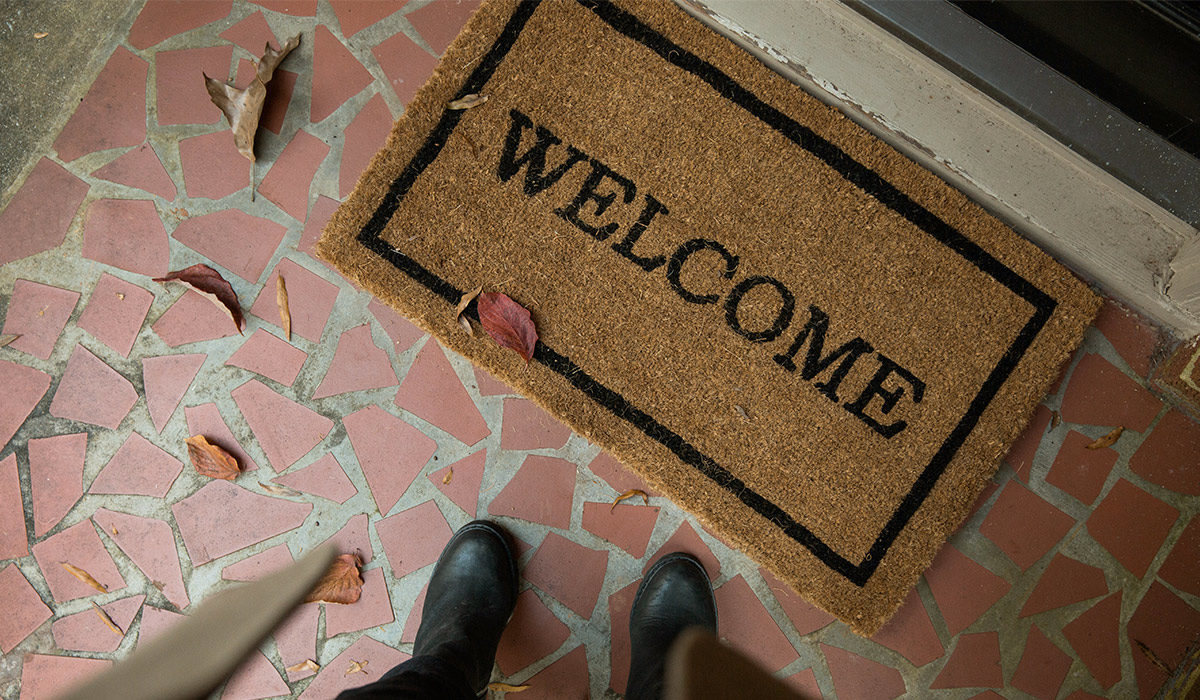Forgotten Hospitality

I went out to the place on our stone driveway where Miguel’s* heart stopped before he was revived. The indentation where he lay as Amanda and Jeff performed CPR seemed cavernous and holy.
Jeff, my son-in-law, left his work for a walk and went out to our garage where Amanda was working out. He heard labored breathing and then saw a pair of legs under the truck of one of the workers hired by Lupe to work on our lawn. Jeff ran to Amanda, and they found Miguel on the ground with barely a pulse. He had stopped breathing, and they immediately began doing CPR. 911 was called, and they arrived 5-minutes later. Two ambulances, a police car, multiple EMS staff, and their supervisor took over, and after a half-hour, Miguel was sitting up and able to talk.
It was unclear what caused his heart to stop, but one of the EMTs said: “If you hadn’t performed CPR, he would have died.” The EMTs assumed he would be transported to a local hospital, but he refused. Likely, he was concerned about the cost or perhaps was undocumented and feared deportation.
I stood next to stones that bore the outline of his body. Thirty compressions per minute over 8 minutes and then further compressions by the EMTs put a concave dent into the stones. It only lacked the painted white line that would mark the body of a crime victim. This indentation marked a miracle and a ghastly heartache.
If Jeff had not walked out to talk to Amanda, Miguel would have died. If Amanda and Jeff were both not trained to do CPR, Miguel would have died. If he had a heart attack at lunch an hour before, he would likely have died. There were so many things ‘right’ about the moment that it is not inaccurate to call it ‘miraculous.’ What haunted me through the night and on through the next day is not all that went well but what went poorly. What would keep him from going to the hospital—deportation, drugs, money, debt, fear, family? Whatever the cause, we sent a man who died, came back to life, and drove away in the company truck to fend for himself.
No one in my white socio-economic status would have allowed a friend or neighbor easily to shrug off medical care after the trauma of a heart attack. We would have insisted, cajoled, and pled for care to be chosen. Miguel had no advocate or resource to tend to him in his language, knowing his situation and story. In the end, we were as far from him as those who live and work in the space station.
I can grieve and question our nation’s immigration policy that forces workers who gainfully serve our communities doing labor most Americans refuse to do to hide and live with the fear of insufficient insurance to care for themselves during a medical emergency. I can also struggle on behalf of many who fear they will drown in debt and ruin the lives of their families if they need medical care. My daughter estimated the cost for Miguel’s transfer, tests, and nights in the hospital would have come to at least $50,000.
It is tiresome and yet necessary to say: Something is deeply broken in our system for Miguel to drive away alone. It isn’t just a system; it is our entire concept of hospitality. We were all in shock. We were not thinking, nor had we any experience from which to offer better care. It doesn’t excuse me for being a poorly prepared host.
After the experience, Becky and I walked into our garage, and she asked: “How much does that fly rod cost?” It was not a normal nor logically sensible question. I pled the 5th. She made her point clear. “You have many fly rods that cost $500 or more. If I had asked us to get an AED, a week ago, you would have said, “It is too expensive, or we don’t need it.” She added: “It is not too expensive to save a life, and obviously, we needed it today.” We did. We do. I will. It is an essential provision a good host can offer anyone who ventures into their domain.
In the ancient mid-east, a ‘stranger’ was offered food, water, rest, and protection. Today, someone hired to work on my lawn comes under my scrutiny for the quality of their work and the efficiency of their efforts—seldom ever considered a guest. We often provide water or fruit to those who are working, but it is a little sacrifice.
Becky named what is at issue on a personal and a national level. We have narrowed the meaning of hospitality to rendering favor to friends whom we invite instead of care for strangers who show up.
As I looked at the indentation where Miguel’s body lay, I swore on his life that I would offer better hospitality. That includes the purchase of an AED and taking the time to be trained to do CPR. I need to learn enough Spanish to welcome and hold a conversation that a 3-year-old could offer. Rather than merely decrying our current immigration and medical insurance issues, I need to call out for our privileged lives to offer more than rhetoric or debate. I need to follow the Lord of Hosts.
*Names and identifying information have been changed to protect personal information.
